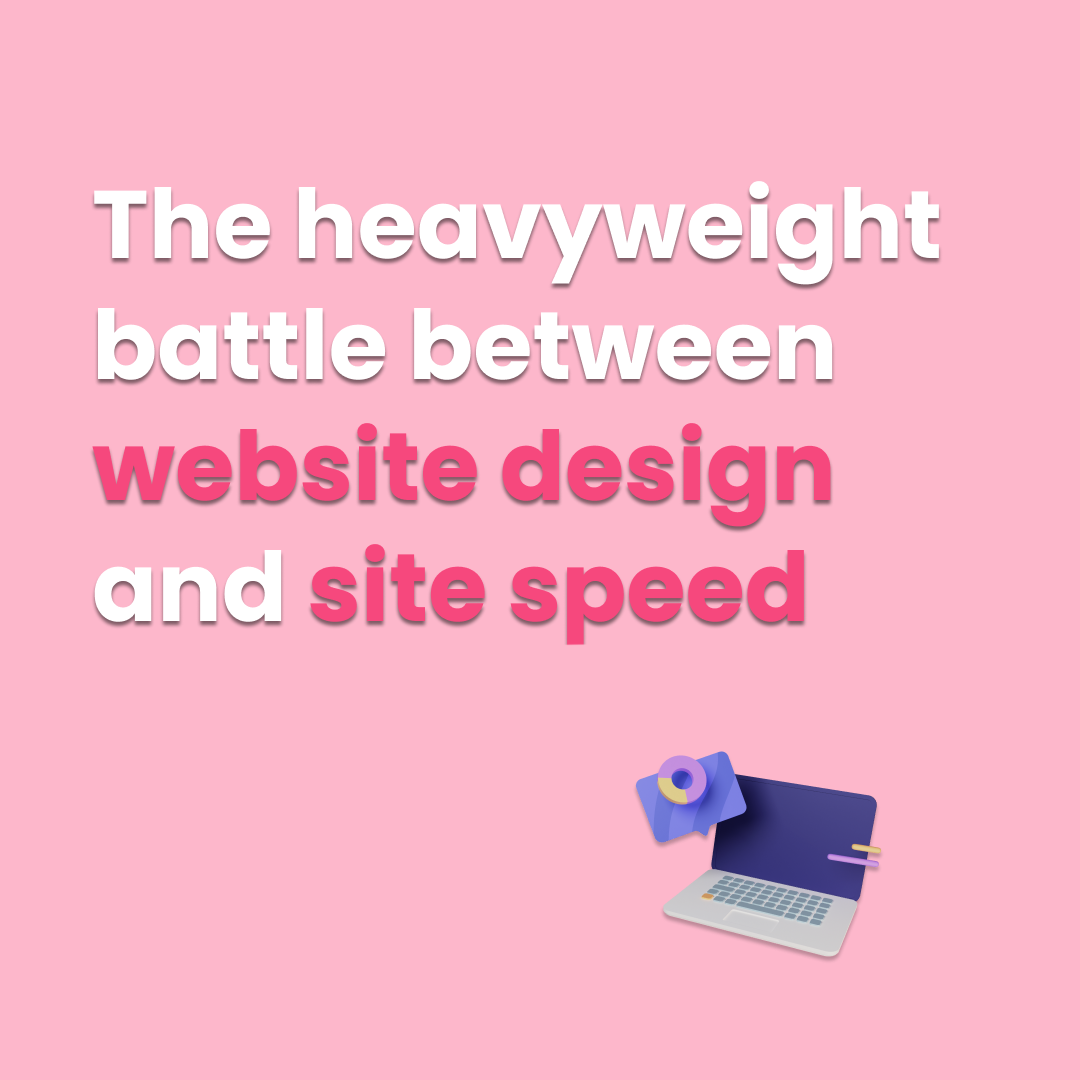As a full-service digital marketing agency, we often find ourselves asking customers to face a trade-off between web design and site speed. The web is an ever-changing and evolving environment; one of the most important aspects of keeping up with this change is ensuring that your website has a strong foundation, which is made up of content, design, and performance.
While each one of these components is important, it’s crucial to understand how they work together to create a site that will engage visitors and keep them coming back for more.
How to design your website
Website design is a process of creating and developing an attractive, intuitive, and user-friendly website. The website design process includes creating a website’s navigation and structure, along with the look and feel. This is usually done by defining a site map that contains the main page hierarchy and from which all other pages are created. The navigation links and sitemap help users navigate through the content of your website, taking them to the homepage, or to other areas of your website that they desire. The website design sets up the functionality as to how people navigate round your online site, much the same as a retail store layout. The process of website design does not end with the launch of the site; it’s a continuous process that includes redesigning, updating and maintaining the site in order to meet people’s changing needs.
When we think of people’s needs, website speed and page load time are two of the most important factors in the user experience and accessibility of information. Website speed is also now one of the most important ranking factors in search engine optimisation (SEO). It affects how fast or slow your website loads on a user’s device. Having a good website speed can help you rank higher in search engines like Google, Bing and Yahoo.
How does website speed affect your performance?
Google’s Web Vitals is a set of metrics that evaluates the quality and performance of a website. The metrics are divided into four categories: Site Speed, Mobile Usability, Page Optimisation, and Accessibility. Site Speed measures the time it takes for a page to load on desktop and mobile devices. Mobile Usability measures the number of steps needed to complete a task on desktop and mobile devices. Page Optimisation measures the number of errors generated by Google’s rendering engine when it renders a page. Accessibility measures how well the Googlebot can crawl through your site and index it’s content. Google’s Web Vitals is used by Google to rank websites in search results as well as provide insights into how well your site is performing. As Google accounts for around 80% of all search engine traffic, it is imperative that your website performs well based on these standards.
Core Web Vitals is a subset of Web Vitals that were introduced in 2020 and measure three main areas when it comes to user experience: loading, interactivity and visual stability.
To save you from the technical jargon, in short, Core Web Vitals will review the length of time it takes for elements on your page to load, how interactive they are and how long it takes for the site to be fully stable. If you have lots of moving images, animations that load on page scroll, videos and large files on your website, these will all contribute to a low score on Core Web Vitals.
Web pages have to load fast. The speed at which a web page loads has a major impact on the conversion rates of websites.
The average loading time of desktop web pages is 2.5 seconds, but it can be as slow as 8 seconds or as fast as 2 seconds. The first impression that a user gets about a website is based on how long it takes for the page to load, and if it takes too long then they are likely to leave the site without viewing any other content. Speed has been a ranking factor in SEO since 2010, but we have seen this significantly increase from 2020 since the launch of Core Web Vitals.
Website speed is an important factor for the overall success of a website. A slow-loading website can lead to visitors abandoning the site. To make sure that you have a fast-loading website, you should consider some of these tips:
Tips for a fast-loading website:
- Use a good website host with fast servers
- Optimise images and videos for web, such as serving images in next-generation formats like webp
- Avoid animation on text or graphics
- Minimise the amount of custom code required for your site to perform
- Avoid unnecessary plugins or demand on the database to load the site
- Consider building a HTML5 website which is inherently faster
- Utilise browser caching
A great website design is a necessary first step to having an effective and successful website, but great web design is more than just a pretty face. It’s about the user experience and the conversion rate of your site. Without good page speed, visitors to your website will quickly navigate elsewhere because they cannot find the information they need easily.
The most important thing to remember when designing a website is that it should be visually appealing, easy to navigate, and should provide users with the information they are looking for in an efficient manner. It is possible to achieve this without large amounts of animation and imagery. Hubspot is a great example of a well-optimised site for search, as they have a very simple site that loads quickly, is to the point and guides users to a call to action quickly.
At Trio, we will always consult with our clients on the best way to achieve a balance between website design and site speed. It’s important to be made aware of any compromises you will need to make to the design in order to gain a great performance score on Core Web Vitals. We always recommend prioritising speed over design, however, this is not at the detriment of your site looking good. This is purely to the detriment of your site not having everything animated and full of large imagery, but still giving the user information that they want.
Not sure how to get the right balance? Speak to a member of our team to find out how your site currently performs and how we can get the best out of your speed and design.
For more information on the digital marketing services we provide, get in touch on 0113 357 0440.



